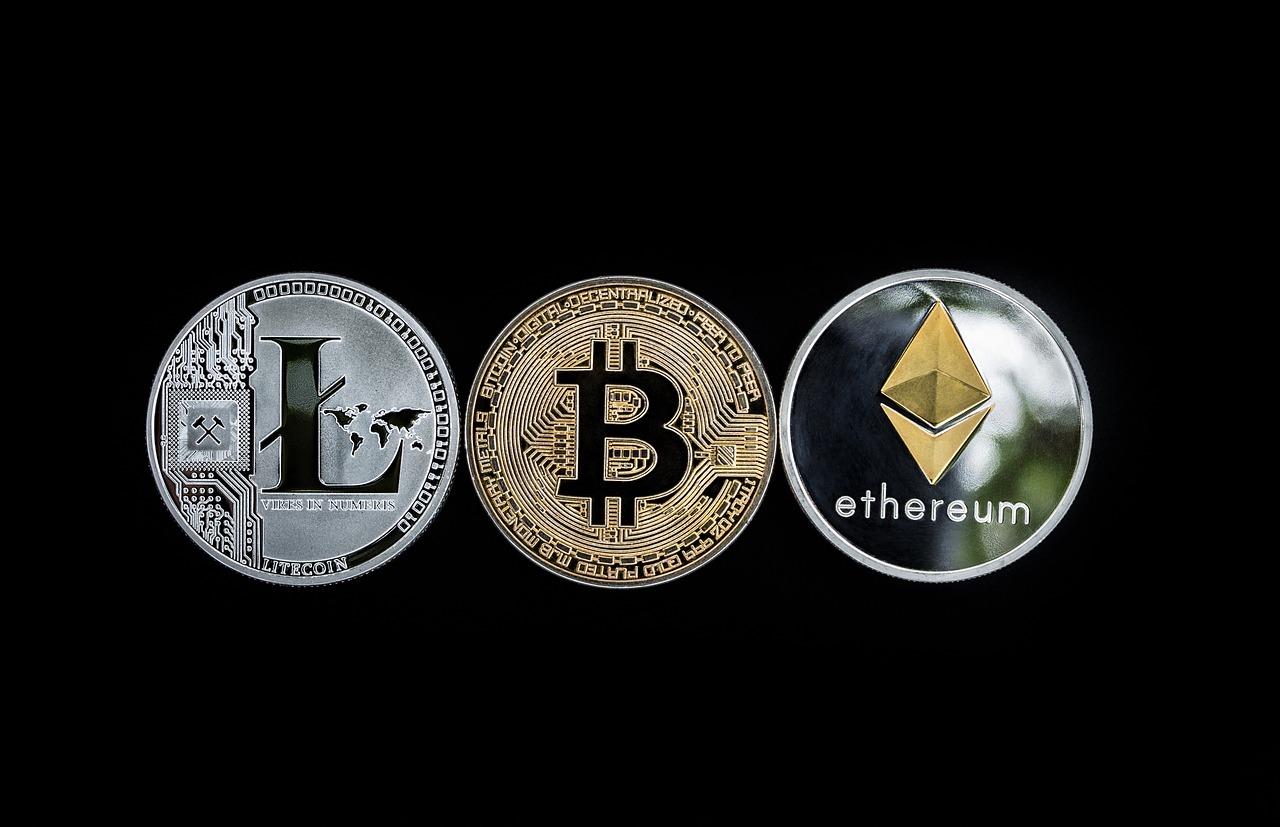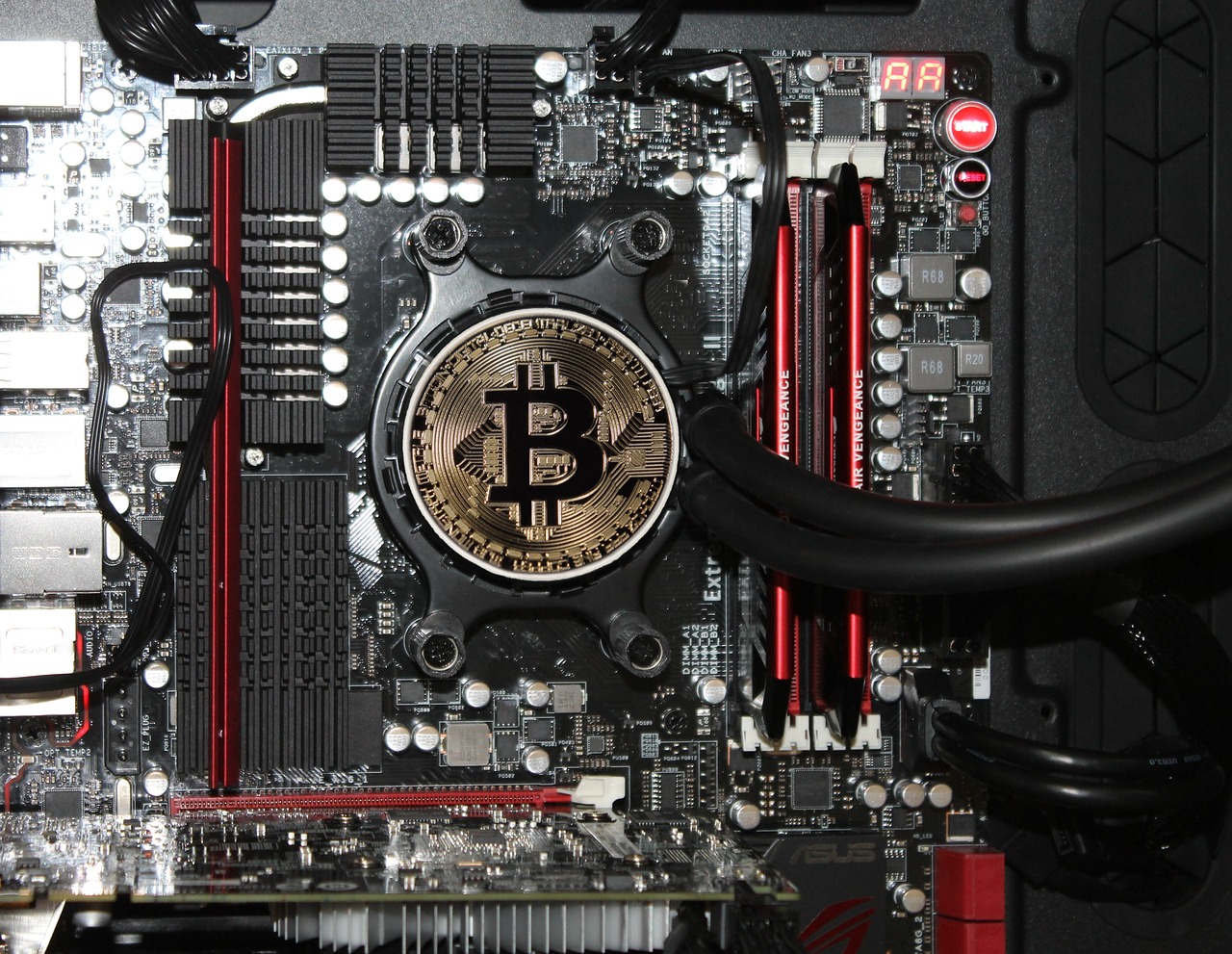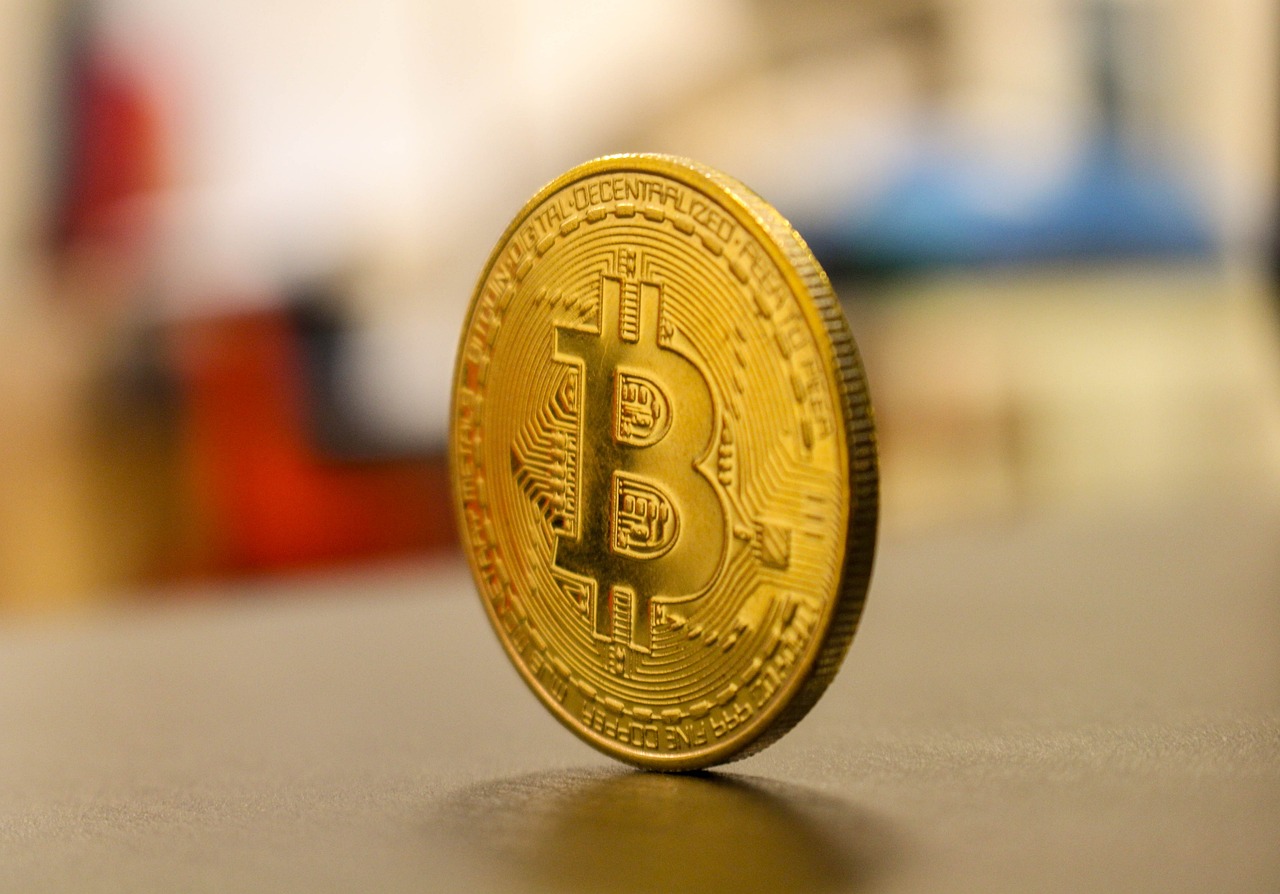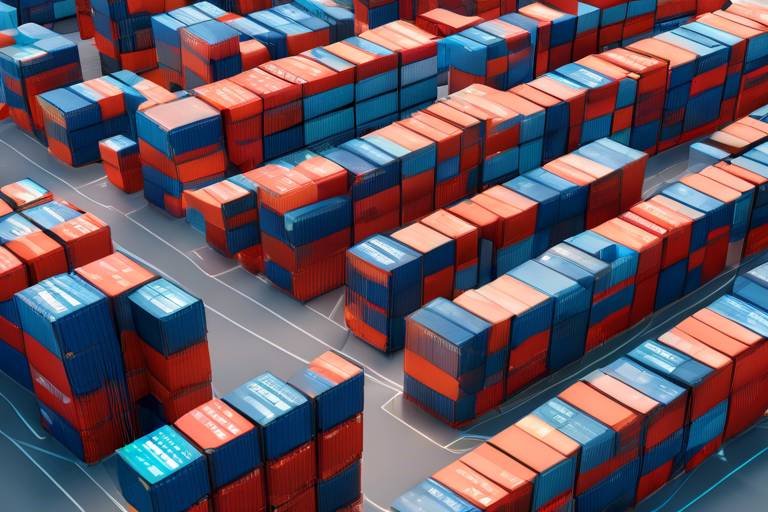How Blockchain Can Enhance Traceability in Pharmaceutical Supply Chains
In today's fast-paced world, the pharmaceutical industry faces numerous challenges, particularly when it comes to ensuring the safety and integrity of its supply chains. With the rise of counterfeit drugs and the increasing demand for transparency, it's essential to explore innovative solutions that can enhance traceability. Enter blockchain technology—a revolutionary tool that promises to transform how pharmaceuticals are tracked and verified throughout their journey from manufacturer to patient. Imagine a world where every pill's history is recorded in a secure, unchangeable ledger, providing complete visibility and accountability. That's the power of blockchain!
Traceability in pharmaceuticals is not just a regulatory requirement; it's a matter of public health and safety. In an industry where the stakes are incredibly high, maintaining a transparent supply chain is essential for protecting consumers from counterfeit products and ensuring compliance with stringent regulations. Without effective traceability, the risks of drug recalls, contamination, and fraud increase significantly. A transparent supply chain allows stakeholders to track the journey of a drug from its origin to the end-user, thereby enhancing accountability and trust.
So, what exactly is blockchain? At its core, blockchain is a decentralized ledger technology that records transactions across multiple computers in such a way that the registered transactions cannot be altered retroactively. This means that all participants in the supply chain have access to the same information, reducing the risk of discrepancies and errors. The decentralized nature of blockchain ensures that no single entity has control over the entire system, promoting fairness and transparency.
One of the standout features of blockchain technology is its decentralization. This characteristic not only enhances security but also builds trust among stakeholders. In a decentralized network, sensitive data is distributed across multiple nodes, making it incredibly difficult for unauthorized users to gain access or alter information. For the pharmaceutical industry, this means that vital data—such as drug manufacturing details, distribution records, and patient information—remains secure and protected from potential breaches.
Another compelling aspect of blockchain is the immutability of records. Once data is entered into the blockchain, it cannot be changed or deleted. This feature is crucial in preventing fraud and ensuring data integrity. For instance, if a counterfeit drug enters the supply chain, the blockchain can provide a clear record of its origin, allowing for swift action to be taken. This level of transparency is invaluable for pharmaceutical companies striving to maintain their reputations and protect consumers.
Smart contracts are another game-changer in the realm of blockchain technology. These self-executing contracts automate processes within the supply chain, significantly reducing delays and errors. For example, when a shipment of drugs is sent, a smart contract can automatically trigger payment once the delivery is confirmed. This not only streamlines transactions but also enhances efficiency in pharmaceutical logistics, allowing companies to focus on what they do best—providing safe and effective medications.
Blockchain fosters greater transparency and trust among all stakeholders in the pharmaceutical supply chain. By providing a shared, tamper-proof record of transactions, blockchain enables manufacturers, distributors, and regulators to collaborate more effectively. Increased visibility can lead to improved accountability, ensuring that all parties are held responsible for their actions. In a world where trust is paramount, blockchain technology has the potential to revolutionize how the pharmaceutical industry operates.
Despite its many advantages, implementing blockchain technology in the pharmaceutical sector is not without challenges. Various hurdles exist, including technological, regulatory, and organizational barriers that must be navigated. For instance, the integration of blockchain solutions with existing systems can be complex and resource-intensive, requiring significant investment and training.
Navigating regulatory compliance is critical for the successful adoption of blockchain in pharmaceuticals. The industry is heavily regulated, and aligning blockchain solutions with existing standards can be a daunting task. Companies must ensure that their blockchain implementations meet all necessary guidelines while also maintaining the flexibility to adapt to future regulations.
Integrating blockchain with current supply chain systems presents another challenge. Organizations must develop strategies to overcome integration obstacles, ensuring a smooth transition to blockchain technology. This may involve upgrading existing infrastructure, training staff, and collaborating with technology providers to create a cohesive system.
The future of blockchain in the pharmaceutical industry holds immense potential. As technology continues to evolve, we can expect to see innovative trends and solutions that further enhance supply chain management. From improved patient safety to greater operational efficiency, the possibilities are endless. As stakeholders embrace blockchain, the pharmaceutical landscape will likely transform, leading to a more secure and transparent industry.
- What is blockchain technology? Blockchain is a decentralized ledger that records transactions across multiple computers, ensuring data integrity and security.
- How does blockchain improve traceability? By providing a transparent and immutable record of transactions, blockchain allows stakeholders to track the journey of pharmaceuticals throughout the supply chain.
- What are smart contracts? Smart contracts are self-executing agreements that automate processes within the supply chain, enhancing efficiency and reducing errors.
- What challenges does blockchain face in pharmaceuticals? Key challenges include regulatory compliance, integration with existing systems, and the need for significant investment and training.

The Importance of Traceability in Pharmaceuticals
Traceability in the pharmaceutical industry is not just a buzzword; it’s a critical component of ensuring public health and safety. Imagine a world where every pill, vaccine, or medical device can be traced back to its origin. This level of transparency is essential for preventing counterfeit drugs, ensuring compliance with regulations, and maintaining the integrity of the supply chain. Without robust traceability, the risk of dangerous or ineffective products entering the market increases significantly, putting patients at risk.
One of the primary reasons traceability is so vital is the growing threat of counterfeit medications. According to the World Health Organization, it is estimated that 10% of medicines in low- and middle-income countries are substandard or falsified. This alarming statistic highlights the need for a transparent supply chain where every link—from manufacturer to distributor to pharmacy—can be monitored and verified. By implementing effective traceability measures, companies can quickly identify the source of any contamination or fraud, ensuring that only safe products reach consumers.
Moreover, traceability is crucial for regulatory compliance. Pharmaceutical companies must adhere to strict regulations set forth by authorities such as the FDA in the United States or the EMA in Europe. These regulations often require detailed record-keeping and reporting of the entire supply chain process. A transparent traceability system not only simplifies compliance but also enhances the company’s reputation by demonstrating a commitment to safety and quality.
In addition to safety and compliance, traceability fosters accountability among stakeholders. When every participant in the supply chain knows they are being monitored, it encourages them to uphold high standards. This accountability can lead to improved practices and ultimately better products for consumers. Furthermore, in the event of a recall, a well-implemented traceability system enables rapid identification of affected batches, minimizing risk to patients and reducing potential financial losses for companies.
To illustrate the importance of traceability, consider the following key benefits:
- Enhanced Safety: Reduces the risk of counterfeit and unsafe products.
- Regulatory Compliance: Simplifies adherence to industry regulations.
- Increased Accountability: Promotes responsible practices among stakeholders.
- Efficient Recalls: Enables quick identification of affected products during a recall.
In conclusion, the importance of traceability in pharmaceuticals cannot be overstated. It is an essential mechanism for ensuring that the products we rely on for our health are safe, effective, and genuine. As the industry evolves, the integration of advanced technologies like blockchain will further enhance traceability, paving the way for a more secure and transparent pharmaceutical supply chain.

Blockchain Technology Explained
Understanding blockchain technology is fundamental to grasping its application in the pharmaceutical sector. At its core, blockchain is a type of distributed ledger technology (DLT) that allows data to be stored across a network of computers, ensuring that every participant has access to the same information. Unlike traditional databases, where a central authority controls the data, blockchain operates on a decentralized model, meaning no single entity has complete control over the entire network. This decentralization is crucial for enhancing security and reducing the risk of fraud.
One of the standout features of blockchain is its ability to provide a transparent and tamper-proof record of transactions. Each transaction is grouped into a block, and once a block is filled, it is added to a chain of previous blocks—hence the name "blockchain." This chain is secured using cryptographic techniques, making it nearly impossible to alter any information without consensus from the network. Imagine trying to change a single page in a book that is being read by thousands of people simultaneously; if you attempt to do so, everyone else will know something is amiss. This analogy highlights the strength of blockchain's transparency and integrity.
In the pharmaceutical industry, this means that every step of a drug's journey—from manufacturer to distributor to pharmacy—is recorded on the blockchain. This creates a traceable and verifiable history of the product, which is invaluable for ensuring safety and compliance. Stakeholders can easily track the provenance of medications, ensuring that they are authentic and have not been tampered with. This capability is especially important in combating issues like counterfeit drugs, which pose significant risks to public health.
Decentralization is a key feature of blockchain that enhances security. In a traditional supply chain, sensitive data is often stored in a central repository, making it a prime target for cyberattacks. However, in a decentralized network, the data is distributed across multiple nodes, making it significantly harder for malicious actors to access or manipulate the information. Each participant in the network has their own copy of the ledger, and any changes made must be validated by the majority. This consensus mechanism not only protects sensitive data but also builds trust among participants, as they can independently verify the information.
The immutability of blockchain records ensures that once data is entered, it cannot be altered. This characteristic is crucial for preventing fraud and ensuring data integrity. In the pharmaceutical supply chain, where the stakes are incredibly high, having an unchangeable record of each transaction can make all the difference. For instance, if a drug is recalled due to safety concerns, the blockchain can provide a clear audit trail, showing exactly where the product has been and who has handled it. This level of accountability is essential for regulatory compliance and maintaining public trust.
Another fascinating aspect of blockchain technology is the use of smart contracts. These are self-executing contracts with the terms of the agreement directly written into code. In the context of pharmaceutical supply chains, smart contracts can automate various processes, such as payment releases upon delivery or automatic notifications for temperature-sensitive products. This automation reduces delays and errors, streamlining transactions and enhancing efficiency in pharmaceutical logistics. Imagine a world where paperwork is minimized, and transactions occur in real-time without human intervention—this is the promise of smart contracts.
In conclusion, understanding blockchain technology is essential for anyone involved in the pharmaceutical industry. Its decentralized nature, immutability, and the potential for automation through smart contracts create a powerful tool for enhancing traceability and security in supply chains. As the industry continues to evolve, embracing blockchain could be the key to overcoming many of the challenges it currently faces.
- What is blockchain technology? Blockchain is a decentralized digital ledger that records transactions across multiple computers securely.
- How does blockchain enhance traceability in pharmaceuticals? It provides an immutable record of transactions, allowing stakeholders to track the history of a product throughout its supply chain.
- What are smart contracts? Smart contracts are self-executing contracts with the agreement terms directly written into code, facilitating automated processes.
- What challenges does blockchain face in pharmaceuticals? Challenges include regulatory compliance, integration with existing systems, and the need for industry-wide collaboration.

Decentralization and Security
When we talk about decentralization in the context of blockchain technology, we’re diving into a realm that fundamentally changes how we think about security. Imagine a traditional database, where all the data is stored in one central location. If that location is compromised, all the data is at risk. Now, picture a blockchain: a network of computers, or nodes, that each hold a copy of the entire database. This means that even if one node is attacked, the integrity of the entire system remains intact. This decentralized nature not only enhances security but also builds a robust shield against fraud and unauthorized access.
In the pharmaceutical supply chain, where sensitive data regarding drug formulations, manufacturing processes, and distribution channels is at stake, this level of security is paramount. By utilizing a decentralized network, pharmaceutical companies can ensure that their data is not only secure but also accessible and verifiable by all authorized parties involved. This creates a sense of trust among stakeholders, from manufacturers to distributors to healthcare providers.
Moreover, the decentralized architecture of blockchain minimizes the risk of a single point of failure. In traditional systems, if the central server goes down, operations can grind to a halt. However, with blockchain, the network continues to function seamlessly, as each node can independently verify transactions. This resilience is crucial in the fast-paced pharmaceutical industry, where delays can lead to significant consequences, including compromised patient safety.
Another critical aspect of decentralization is the enhanced data privacy it offers. Each transaction on a blockchain is encrypted and linked to the previous one, forming a chain of records that is nearly impossible to alter. This immutability ensures that any changes to data can be traced back to their origin, providing a clear audit trail. For pharmaceutical companies, this means they can confidently demonstrate compliance with regulations and maintain accountability in their operations.
Ultimately, the combination of decentralization and security in blockchain technology not only protects sensitive information but also fosters a culture of transparency and trust. As the pharmaceutical industry continues to evolve, embracing these cutting-edge technologies will be essential for ensuring safe and efficient supply chains.

Immutability of Records
The concept of immutability in blockchain technology is one of its most compelling features, particularly when it comes to the pharmaceutical supply chain. Imagine a world where every transaction, every change, and every piece of information is permanently etched in stone—this is what blockchain offers. Once a record is created on the blockchain, it cannot be altered or deleted. This characteristic is crucial for maintaining the integrity of data, especially in an industry where the stakes are incredibly high. In pharmaceuticals, where counterfeit drugs can lead to dire consequences for public health, the ability to ensure that information remains unchanged is invaluable.
To illustrate, consider the following scenarios where immutability plays a vital role:
- Fraud Prevention: With immutable records, the chances of tampering with transaction data are significantly reduced. This deters fraudulent activities, such as the introduction of counterfeit drugs into the supply chain.
- Regulatory Compliance: Regulatory bodies require accurate and reliable data for audits and inspections. Immutable records provide a verifiable trail that can be easily accessed, ensuring compliance with regulations.
- Accountability: When all actions are recorded and cannot be changed, it fosters a culture of accountability among all stakeholders in the supply chain. Each participant knows that their actions are permanently documented, which encourages responsible behavior.
Moreover, the immutability of records enhances trust among stakeholders. In a traditional supply chain, discrepancies can arise due to human error or intentional manipulation of data. However, with blockchain, every participant has access to the same unalterable data. This transparency not only builds trust but also facilitates better collaboration among manufacturers, distributors, and regulators.
In summary, the immutability of records in blockchain technology is a game-changer for the pharmaceutical industry. It not only safeguards against fraud but also ensures compliance and fosters accountability. As we move towards a more digitized world, leveraging this feature will be essential for enhancing the overall integrity of pharmaceutical supply chains.
- What is blockchain immutability? Blockchain immutability refers to the property that once data is recorded on a blockchain, it cannot be changed or deleted, ensuring the integrity of the information.
- How does immutability prevent fraud in pharmaceuticals? By making records tamper-proof, immutability significantly reduces the risk of introducing counterfeit drugs into the supply chain.
- Why is accountability important in the pharmaceutical supply chain? Accountability ensures that all stakeholders act responsibly, knowing their actions are permanently recorded, which helps maintain high standards of safety and compliance.

Smart Contracts in Supply Chains
In the ever-evolving landscape of pharmaceutical supply chains, smart contracts are emerging as a game-changer. But what exactly are smart contracts? Simply put, they are self-executing contracts with the terms of the agreement directly written into code. This means that once certain conditions are met, the contract automatically executes without the need for intermediaries. Imagine a world where transactions are seamless, errors are minimized, and efficiency is maximized—all thanks to smart contracts.
In the pharmaceutical industry, where precision and compliance are paramount, smart contracts can significantly streamline operations. For instance, consider a scenario where a pharmaceutical company needs to verify the authenticity of a drug shipment. Traditionally, this process could involve multiple checks and balances, leading to delays and potential errors. However, with a smart contract in place, the verification process can be automated. As soon as the shipment arrives, the smart contract checks the details against the blockchain records and confirms whether the shipment is legitimate.
This automation not only speeds up the verification process but also reduces the likelihood of human error. It’s like having a diligent assistant who never misses a detail. Furthermore, smart contracts can also facilitate payment transactions. Once the conditions of delivery are met, the payment can be automatically released to the supplier. This eliminates the need for lengthy invoicing processes and ensures that suppliers are paid promptly, fostering better relationships.
Moreover, smart contracts enhance accountability within the supply chain. Every action taken is recorded on the blockchain, creating a transparent trail of transactions. This means that if something goes wrong—say, a shipment is delayed or a product is found to be counterfeit—stakeholders can easily trace back through the records to identify where the issue occurred. In this way, smart contracts not only streamline processes but also bolster trust among all parties involved.
However, while the benefits of smart contracts are clear, it’s essential to approach their implementation thoughtfully. Organizations need to ensure that the smart contracts are well-designed and that all stakeholders understand how they function. This involves training and possibly reevaluating existing processes to fully leverage the potential of this technology. Just as a ship needs a skilled captain to navigate through uncharted waters, the successful integration of smart contracts requires knowledgeable leadership and collaboration.
In conclusion, smart contracts represent a revolutionary step forward in the pharmaceutical supply chain. They promise increased efficiency, reduced errors, and enhanced transparency. As the industry continues to embrace blockchain technology, smart contracts will undoubtedly play a critical role in shaping the future landscape of pharmaceutical logistics.
- What are smart contracts?
Smart contracts are self-executing contracts with the terms written into code, allowing for automatic execution of agreements when conditions are met. - How do smart contracts improve supply chain efficiency?
They automate processes, reducing the need for intermediaries and minimizing human error, which leads to faster transactions. - Can smart contracts enhance accountability?
Yes, because all actions are recorded on the blockchain, creating a transparent trail that can be traced back if issues arise. - What challenges might organizations face when implementing smart contracts?
Organizations may struggle with designing effective contracts and ensuring all stakeholders are educated on their use.

Enhancing Transparency and Trust
In the ever-evolving landscape of the pharmaceutical industry, trust and transparency are paramount. Consumers, healthcare providers, and regulatory bodies are increasingly demanding assurance that the medications they use are safe, effective, and sourced from reliable suppliers. This is where blockchain technology steps in like a superhero, ready to save the day! By providing a transparent and immutable record of transactions, blockchain enhances the traceability of pharmaceutical products from manufacturer to end-user.
Imagine a world where every pill you take comes with a digital fingerprint, allowing you to trace its journey back to the production line. With blockchain, this is not just a dream but a reality. Each transaction in the supply chain is recorded on a decentralized ledger, which means that anyone with access can view the entire history of a product. This level of transparency is revolutionary, as it not only helps in tracking the origin of medications but also in verifying their authenticity. In an industry plagued by counterfeit drugs, this feature is invaluable.
Moreover, the collaborative nature of blockchain fosters a sense of community among stakeholders. When manufacturers, distributors, and retailers share a common platform, they can work together more effectively. This collaboration enhances accountability, as each party knows that their actions are visible to others. For instance, if a batch of medication is found to be defective, blockchain allows for swift identification of the source and facilitates a rapid recall, thereby protecting patient safety.
Additionally, the data stored on a blockchain is tamper-proof. Once a record is created, it cannot be altered or deleted without consensus from the network participants. This immutability builds a strong foundation of trust among stakeholders. They can be confident that the information they are relying on is accurate and has not been manipulated. In a sector where misinformation can lead to dire consequences, this assurance is crucial.
To illustrate the impact of blockchain on transparency and trust, consider the following table:
| Feature | Benefit |
|---|---|
| Decentralized Ledger | All parties have access to the same data, reducing discrepancies. |
| Immutability | Records cannot be altered, ensuring data integrity. |
| Real-Time Tracking | Immediate visibility of product status, enhancing responsiveness. |
| Smart Contracts | Automated processes reduce human error and improve efficiency. |
In conclusion, the integration of blockchain technology into pharmaceutical supply chains is a game-changer. It not only enhances transparency and trust but also sets a new standard for accountability in the industry. As stakeholders embrace this technology, they pave the way for a safer and more reliable healthcare system, ultimately benefiting patients and consumers alike.
- What is blockchain technology? Blockchain is a decentralized digital ledger that records transactions across multiple computers, ensuring that the recorded data cannot be altered retroactively.
- How does blockchain improve traceability in pharmaceuticals? By providing a transparent, immutable record of each transaction, blockchain allows stakeholders to track the entire journey of a pharmaceutical product, from production to consumption.
- What are the benefits of using blockchain in the pharmaceutical supply chain? Benefits include enhanced transparency, improved trust among stakeholders, increased efficiency through smart contracts, and better protection against counterfeit drugs.
- Are there challenges in implementing blockchain in pharmaceuticals? Yes, challenges include regulatory compliance, integration with existing systems, and the need for industry-wide collaboration.

Challenges in Implementing Blockchain
Implementing blockchain in the pharmaceutical industry is not without its hurdles. Despite the numerous benefits that blockchain technology can bring to the table, there are a variety of challenges that organizations must navigate to successfully integrate this innovative solution into their existing supply chains. These challenges can be broadly categorized into technological, regulatory, and organizational barriers. Each of these areas presents unique obstacles that can impede the adoption of blockchain technology.
First and foremost, technological challenges are a significant concern. Many pharmaceutical companies operate on legacy systems that may not be compatible with new blockchain solutions. This incompatibility can lead to data silos, where information is trapped in outdated systems, preventing the seamless flow of data across the supply chain. Additionally, the implementation of blockchain requires a certain level of technical expertise that may be lacking in some organizations. Without the right skills and knowledge, companies may struggle to harness the full potential of blockchain technology.
Another critical aspect to consider is regulatory compliance. The pharmaceutical industry is one of the most heavily regulated sectors in the world. Navigating the complex landscape of regulations while trying to implement a new technology like blockchain can be daunting. Companies must ensure that their blockchain solutions align with existing regulations, such as the Drug Supply Chain Security Act (DSCSA) in the United States. Failure to comply with these regulations can result in severe penalties, making it imperative for organizations to work closely with regulatory bodies to ensure that their blockchain implementations meet all necessary standards.
Moreover, there are organizational barriers that can hinder the adoption of blockchain. The pharmaceutical supply chain involves multiple stakeholders, including manufacturers, wholesalers, distributors, and pharmacies. Each of these entities may have different priorities and levels of willingness to adopt new technologies. Achieving consensus among all stakeholders can be a significant challenge, as it requires collaboration and trust. Without a unified approach, the effectiveness of blockchain as a traceability solution may be compromised.
To overcome these challenges, companies can adopt several strategies. For instance, investing in training and development can equip employees with the necessary skills to work with blockchain technology. Additionally, fostering open communication among stakeholders can help build trust and facilitate collaboration. By addressing these challenges head-on, pharmaceutical companies can pave the way for a more transparent and efficient supply chain.
In conclusion, while the implementation of blockchain in the pharmaceutical industry presents several challenges, the potential rewards are substantial. By understanding and addressing these obstacles, organizations can leverage blockchain technology to enhance traceability, improve safety, and ultimately protect public health.
- What are the main challenges of implementing blockchain in pharmaceuticals?
Technological, regulatory, and organizational challenges are the main hurdles in implementing blockchain in the pharmaceutical sector. - How can companies address regulatory compliance issues?
By closely collaborating with regulatory bodies and ensuring their blockchain solutions align with existing regulations. - What is the significance of stakeholder collaboration in blockchain adoption?
Collaboration among stakeholders is crucial for building trust and ensuring the effectiveness of blockchain as a traceability solution.

Regulatory Compliance Issues
When it comes to implementing blockchain technology in the pharmaceutical sector, one of the most significant hurdles that organizations face is navigating the complex landscape of regulatory compliance. The pharmaceutical industry is heavily regulated, with stringent guidelines designed to ensure the safety and efficacy of drugs. As such, any new technology, including blockchain, must align with these existing regulations to gain acceptance and facilitate widespread adoption.
One of the primary challenges lies in the alignment of blockchain frameworks with the regulatory standards set forth by authorities such as the FDA (Food and Drug Administration) in the United States or EMA (European Medicines Agency) in Europe. These agencies have established rules that govern how data is recorded, stored, and shared throughout the supply chain. For instance, any changes in drug status, such as recalls or adverse event reporting, must be accurately documented and easily accessible. Blockchain's immutable nature could enhance this process, but it must be carefully integrated to ensure compliance.
Moreover, the decentralized nature of blockchain can complicate accountability and traceability. In traditional systems, a single entity often holds the responsibility for data integrity and compliance. However, in a blockchain environment, multiple stakeholders contribute to the data, which raises questions about who is liable if something goes wrong. This decentralized accountability can lead to regulatory gray areas, making it imperative for organizations to establish clear governance frameworks that delineate roles and responsibilities.
In addition to these challenges, organizations must also consider the data privacy regulations that govern patient information. Laws such as HIPAA (Health Insurance Portability and Accountability Act) in the U.S. impose strict guidelines on how personal health information can be accessed and shared. While blockchain can enhance data security, it also presents unique challenges regarding data ownership and consent, particularly when it comes to immutable records that might contain sensitive information.
To address these regulatory compliance issues, pharmaceutical companies can take several proactive steps:
- Engage with Regulatory Bodies: Early and ongoing communication with regulatory agencies can help clarify expectations and requirements for blockchain implementations.
- Develop Robust Governance Policies: Establishing clear policies that outline data ownership, accountability, and compliance can mitigate risks associated with decentralized data management.
- Invest in Training: Ensuring that employees are well-versed in both blockchain technology and regulatory requirements can foster a culture of compliance.
In summary, while the integration of blockchain into pharmaceutical supply chains holds immense potential for improving traceability and security, the pathway is fraught with regulatory compliance challenges. By understanding these issues and taking proactive steps to address them, organizations can better position themselves for successful blockchain adoption.
- What are the primary regulatory challenges for blockchain in pharmaceuticals? The main challenges include aligning with existing regulations, ensuring data privacy, and establishing accountability in a decentralized environment.
- How can organizations ensure compliance when implementing blockchain? Companies can engage with regulatory bodies, develop robust governance policies, and invest in employee training to navigate compliance issues effectively.
- What role do regulatory bodies play in the adoption of blockchain technology? Regulatory bodies help set the standards and guidelines that blockchain solutions must adhere to, ensuring patient safety and data integrity.

Integration with Existing Systems
Integrating blockchain technology into existing pharmaceutical supply chain systems is akin to fitting a new puzzle piece into an established picture. It can be challenging, but the rewards are well worth the effort. The pharmaceutical industry has long relied on traditional systems that may not be designed for the complexities and demands of modern supply chains. Therefore, the transition to blockchain requires careful planning and execution.
One of the primary challenges of integration is the compatibility of blockchain with legacy systems. Many pharmaceutical companies still use outdated software and processes that are not equipped to handle blockchain's decentralized nature. This can create significant hurdles in data exchange and communication. To overcome these issues, companies may need to invest in upgrading their existing infrastructure or developing middleware solutions that can bridge the gap between old and new technologies.
Moreover, the integration process must be approached with a clear strategy. Here are some key considerations:
- Assessment of Current Systems: Before diving into integration, companies should conduct a thorough assessment of their current systems. This helps identify which components can work with blockchain and which need to be replaced or upgraded.
- Stakeholder Engagement: Involving all stakeholders—from suppliers to regulatory bodies—is crucial. Their insights can provide valuable perspectives on how blockchain can best serve the supply chain.
- Pilot Programs: Implementing pilot programs can help organizations test the waters before a full-scale rollout. These smaller projects allow companies to identify potential issues and make necessary adjustments.
Additionally, training and education play a vital role in the successful integration of blockchain. Employees must understand how to use the new system effectively. This might involve workshops, training sessions, or even online courses to ensure everyone is on the same page. After all, a well-informed team is essential for maximizing the benefits of blockchain technology.
Lastly, it’s important to remember that integration is not a one-time event but rather an ongoing process. As technology evolves and new challenges arise, pharmaceutical companies must remain adaptable. Continuous evaluation and improvement of the integrated system will ensure that it meets the ever-changing demands of the industry.
In conclusion, while the integration of blockchain into existing pharmaceutical supply chains presents its share of challenges, the potential benefits—such as enhanced transparency, improved efficiency, and increased trust—make it a worthwhile endeavor. By approaching integration strategically and collaboratively, companies can position themselves for success in the future of pharmaceuticals.
- What are the main challenges of integrating blockchain into existing systems? The main challenges include compatibility with legacy systems, the need for stakeholder engagement, and ensuring proper training for employees.
- How can companies assess their current systems for blockchain integration? Companies should conduct a thorough assessment to identify which components can work with blockchain and which need upgrades or replacements.
- Are pilot programs beneficial for blockchain integration? Yes, pilot programs allow companies to test the integration process on a smaller scale, helping to identify potential issues before a full rollout.

The Future of Blockchain in Pharmaceuticals
The future of blockchain technology in the pharmaceutical industry is not just a fleeting trend; it’s a transformative force that promises to redefine how we approach supply chain management. As we look ahead, several key trends and innovations are emerging that could significantly enhance the efficiency, safety, and transparency of pharmaceutical supply chains. Imagine a world where every pill, syringe, and vaccine can be traced back to its origin, ensuring that what patients receive is safe and authentic. This is the vision that blockchain technology brings to the table.
One of the most exciting prospects is the potential for real-time tracking of pharmaceutical products. With blockchain, every transaction and movement of goods can be recorded on a decentralized ledger, allowing stakeholders to access up-to-date information at any point in the supply chain. This not only reduces the risk of counterfeit drugs entering the market but also enhances the ability to respond swiftly to recalls or safety alerts. For instance, if a batch of medication is found to be defective, blockchain can provide a clear map of where those products have been distributed, enabling rapid action to protect public health.
Moreover, the integration of artificial intelligence (AI) with blockchain is another frontier that holds immense promise. By leveraging AI algorithms alongside blockchain’s secure and transparent framework, companies can analyze vast amounts of data to predict trends, optimize inventory management, and even forecast potential disruptions in the supply chain. This synergy could lead to a more resilient supply chain, capable of adapting to challenges such as sudden spikes in demand or logistical disruptions.
Furthermore, we can expect to see an increase in the use of smart contracts within the pharmaceutical sector. These self-executing contracts, with the terms of the agreement directly written into code, can automate various processes, from verifying the authenticity of drugs to managing payments between suppliers and distributors. This automation not only speeds up transactions but also minimizes the risk of human error, which is crucial in an industry where precision is paramount.
However, the journey towards widespread blockchain adoption is not without its challenges. The industry must navigate complex regulatory landscapes and ensure that all stakeholders, from manufacturers to pharmacists, are on board with the technology. Education and collaboration will be key in overcoming these hurdles. As more companies pilot blockchain initiatives and share their findings, we’ll likely see a clearer path forward for the entire industry.
In summary, the future of blockchain in pharmaceuticals is bright and full of potential. As we continue to explore its capabilities, we are likely to witness a significant shift towards more transparent, efficient, and secure supply chains. The question is not whether blockchain will be adopted, but rather how quickly the industry can embrace this revolutionary technology to enhance patient safety and trust.
- What is blockchain technology? Blockchain is a decentralized digital ledger that records transactions across many computers in such a way that the registered transactions cannot be altered retroactively.
- How does blockchain improve traceability? Blockchain enhances traceability by providing a transparent and immutable record of every transaction, allowing stakeholders to track the movement of pharmaceutical products throughout the supply chain.
- What are smart contracts? Smart contracts are self-executing contracts with the terms of the agreement directly written into code, which automate processes and reduce the risk of human error.
- What challenges does blockchain face in pharmaceuticals? Key challenges include regulatory compliance, integration with existing systems, and the need for industry-wide collaboration.
Frequently Asked Questions
- What is the role of blockchain in pharmaceutical supply chains?
Blockchain technology enhances traceability, security, and transparency within pharmaceutical supply chains. By providing a decentralized ledger, it allows all stakeholders to access real-time data, which helps in tracking the movement of drugs from manufacturers to consumers, ensuring safety and compliance.
- Why is traceability important in the pharmaceutical industry?
Traceability is vital for ensuring the safety and efficacy of pharmaceutical products. It helps in preventing counterfeit drugs from entering the market, facilitates recalls when necessary, and maintains compliance with regulatory standards, ultimately protecting public health.
- How does blockchain improve security in pharmaceutical supply chains?
Blockchain enhances security through its decentralized nature, meaning that no single entity controls the data. This reduces the risk of unauthorized access and data breaches, ensuring that sensitive information remains protected across the supply chain.
- What are smart contracts and how do they benefit supply chains?
Smart contracts are self-executing contracts with the terms of the agreement directly written into code. They automate processes within the supply chain, reducing delays and errors, which leads to increased efficiency and streamlined transactions in pharmaceutical logistics.
- What challenges are faced when implementing blockchain in pharmaceuticals?
Implementing blockchain technology in the pharmaceutical industry can be challenging due to regulatory compliance issues, the integration with existing systems, and the need for industry-wide collaboration. Addressing these hurdles is crucial for successful adoption.
- How can regulatory compliance be ensured with blockchain?
Navigating regulatory compliance requires a thorough understanding of existing pharmaceutical regulations. Collaborating with regulatory bodies during the development of blockchain solutions can help ensure that these technologies align with necessary standards and practices.
- What does the future hold for blockchain in the pharmaceutical industry?
The future of blockchain in pharmaceuticals is promising, with potential advancements in technology and increased adoption across the industry. Innovations may lead to improved supply chain management, enhanced patient safety, and greater collaboration among stakeholders.



















